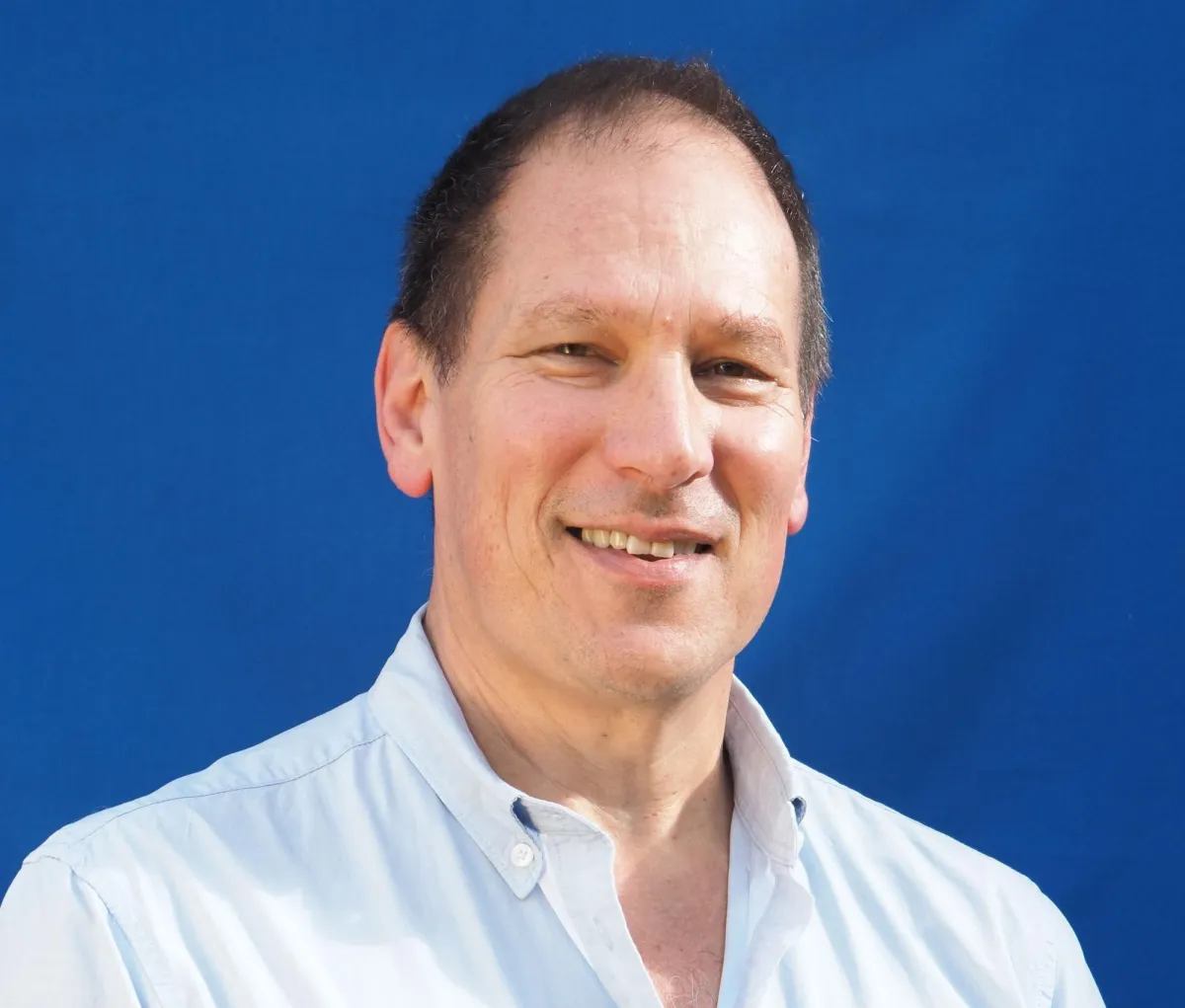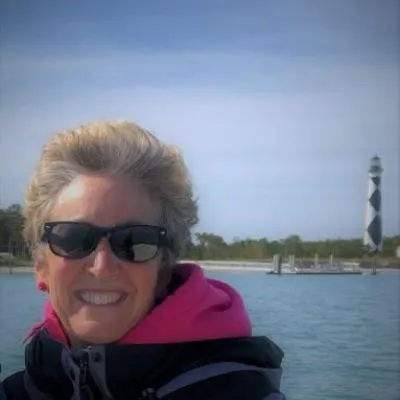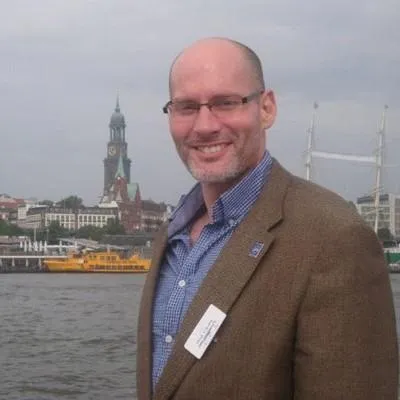Join 249 Pioneers
in the MMAC* Network
We're a Community of Practice making economic transformation real.
Join us in creating abundance in *Municipal Mutual Aid Communities/Cities.
(MMAC/s, pronounced Mack/s)
We’re tackling one of the toughest challenges in building new economic systems: how to make bold alternatives take root in communities.
Our focus is on Mutual Aid Currencies: tools for resilience and inclusion that only work
when people and businesses actively use them.
The old economy is failing too many.
We’re not waiting for theory to catch up.
We’re practitioners, municipal leaders, and innovators
collaborating to turn mutual aid currencies from promising ideas into everyday reality.
Our work is about action: piloting new models, navigating real-world barriers,
and building networks that make these systems valuable from day one.
If you’re ready to move beyond academic theory and help
communities, cities, and regions seize the moment of global transition,
we invite you to join us.
We're co-creating the frameworks and partnerships that will make the
next economy work for everyone, starting where change matters most: on the ground.
An Invitation to Systems Leadership
Every monetary transition creates winners and losers. The difference isn't luck. It's preparation, positioning, and partnerships.
You've built your expertise in community economics, cooperative development, systems innovation, or local currencies. You understand that real change happens at the local level, where policy meets practice and innovation becomes implementation.
The MMAC Pioneers Network connects proven practitioners who are ready to deploy mutual aid currencies as the current system transforms.
This isn't theory. It's tactical implementation guided by those who've already commenced the journey in similar contexts.
As a Founding Member, You Will Help:
Co-Develop Implementation Models
Work with fellow practitioners to create and test frameworks for municipal mutual aid currencies through real-world pilots
Navigate Regulatory Pathways Together
Share insights and collectively develop approaches for working within existing legal frameworks
Build the Implementation Network
Connect with and help curate a community of municipal leaders, cooperative developers, and technology innovators
Create Shared Resources
Contribute to and access collectively developed funding strategies, policy templates, and technical infrastructure
Shape the Transition Framework
Pioneer approaches that position communities, bioregions, towns, and cities to benefit from monetary system changes
MACC Essentials:
Implementation Fundamentals
The Implementation Window
Understanding the monetary transition timeline and optimal deployment strategies
Legal and Regulatory Navigation
Working within existing frameworks while building alternative systems
Municipal Partnership Development
Engaging local government and community stakeholders effectively
Technical Infrastructure
Blockchain, digital platforms, and operational systems for mutual aid currencies
Economic Design Principles
Creating sustainable, community-centered economic models
Network Activation
Building and maintaining the relationships essential for successful deployment
Case Study Analysis
Learning from successful implementations across diverse communities
Strategic Positioning
Building trust prior to launch; timing your launch for maximum impact during the transition period
Network Convener & Development Strategist

Michael Haupt
Michael Haupt has spent two decades identifying intersection points where monetary system changes create opportunities for community/city-centered alternatives. His systems research focuses on practical pathways for deploying mutual aid networks during institutional transitions.
As convener of the MMAC Pioneers Network, Michael is bringing together accomplished practitioners to collaboratively develop the resources, relationships, and strategic frameworks needed for successful local economic deployment.
Michael's work bridges monetary system analysis with implementation pathways, supporting a growing community of innovators who are exploring how communities can create and circulate value differently.
What Pioneer Members Are Building Toward
"We're creating strategic frameworks and network connections that will support municipal mutual aid pilots. The collaborative approach to regulatory navigation could save communities months of development time."
— Municipal Innovation Focus
"As someone working in community currencies, I see the value in connecting proven practitioners with cutting-edge implementation strategies for scaling this work."
— Community Economics Perspective
"The Network is connecting technical partners and municipal contacts essential for cooperative development. This is about practical collaboration that delivers results."
— Cooperative Systems Vision
TESTIMONIALS
What Others Have Said

"Clarity about what's emerging"
“I so appreciate the clarity with which you've framed what is happening in the world... and what is emerging.”
- Cheri Torres, PhD
Author, Organization Consultant


"The lens I've been searching for"
“So brilliant. This is the lens I've been searching for. I've seen the pieces but not the bigger frame. Thank you.”
- Deborah Morris
Organization Effectiveness Consultant


"Excellent historical context of seismic changes"
“You've provided an excellent historical context of the seismic cultural, economic, political, and business changes we're now experiencing across the globe.”
- John Jacobs, MBA
Chief Operating Officer & Senior Advisor


"A compelling narrative"
“Your ability to synthesize historical patterns, human consciousness evolution, and business transformation into a compelling narrative is both thought-provoking and timely.”
- Ivanov Vivas
Management Consultant

The Framework Development Window
Based on monetary system analysis, we anticipate the optimal implementation period for MMACs will likely be 2026-2028, as existing structures face increasing stress while new frameworks are being established.
Communities and cities that begin building mutual aid networks during this preparation phase
will be better positioned for the transition.
Those that wait may face fewer options.
The MMAC Pioneers Network exists to collectively develop and test approaches during this critical preparation period.
Founding Membership Starts With MMAC Essentials:
A Foundation Building Intensive
This Intensive introduces you to the collaborative framework development process
and connects you with fellow founding members.
Date & Time
Thursday, July 10th, 2025
09:00PST, 12:00EST, 16:00UTC, 18:00CET
Format
2-hour intensive Zoom session
Access to online network platform post-session
What You'll Receive
Founding Member status
Lifetime access to all resources developed
Priority connections with fellow founding practitioners
Investment
$249 one-time payment
Future members will pay annual subscription fees
Limited sliding-scale positions available with code N2030SAVE for practitioners with resource constraints
Secure Your Founding Member Position
Join 249 founding practitioners building the MMAC framework during the critical 2026-2028 preparation window.
You receive lifetime access for pioneers who help create the solutions.

Try the MMAC Essentials Intensive Risk-Free
Full, no questions asked refund if you decide MMAC isn't the right fit.
WHAT YOU'LL RECEIVE
FOUNDING MEMBER status in the collaborative network (limited to 249 practitioners)
Live access to the Essentials Intensive on Thursday, July 10th, 2025
LIFETIME access to all resources developed by the network (no annual fees)
DIRECT influence on framework development and resource creation
Intensive recording sent within 24 hours
Immediate access to the collaborative platform post-session
Priority connections with fellow founding practitioners
WHAT WE'LL EXPLORE
The monetary transition timeline and strategic positioning opportunities
Regulatory landscape assessment and navigation strategies
Municipal partnership development approaches
Technical infrastructure considerations for mutual aid currencies
Design principles for community-centered belief systems
Network building and relationship development
Early implementation case studies and lessons learned
Strategic timing for community preparation and deployment
Founding Member Confidence Guarantee
Try the MMAC Essentials Intensive Risk-Free
We're confident this collaborative approach to building community economic resilience will resonate with serious practitioners like you. However, we understand that joining a pioneering initiative involves uncertainty.
Your Protection:
Full refund available if you decide MMAC isn't the right fit
7-day evaluation period after attending the Intensive
Simple refund process - just email us within 7 days
No questions asked - we understand pioneering work isn't for everyone
One Important Note: To protect the integrity and confidentiality of our collaborative network, refunds are only available before you register on the online collaboration platform. Once you join the platform and gain access to ongoing member discussions and strategic frameworks, your Founding Member commitment begins. Your access details are sent after the 2-hour Intensive.
This policy ensures:
You can evaluate the approach thoroughly
Network members can collaborate openly and confidentially
Only committed practitioners join the collaborative development process
The network consists of engaged partners, not reluctant participants. This guarantee lets you make an informed decision while protecting the trust that makes collaborative innovation possible.
Frequently Asked Questions
For a comprehensive list of questions covering Sections A through I, see FAQs
Section A: MMAC Foundation & Framework
What exactly is a Municipal Mutual Aid Community/City (MMAC)?
The network effect problem in mutual aid credit currencies is classic: they're only valuable when enough people use them, but people won't use them until they're already valuable. This creates a chicken-and-egg adoption challenge that has historically limited the success of local currencies and mutual aid credit systems.
- Individual adoption requires confidence that others will also adopt
- Merchants won't accept until customers use it
- Customers won't use it until merchants accept it
- Without critical mass, the system fails to provide real utility
- Past local currency experiments often failed due to insufficient adoption infrastructure
MMACs solve the network effect by creating the community infrastructure and institutional legitimacy (municipalities) that enables successful mutual aid credit currency adoption.
For an historical precedent, consider the Certified Compensation Bills, commonly referred to as Stamp Scrip or Freigeld, which were a form of local currency issued in Wörgl, Austria, during the Great Depression in 1932. For a current example, we refer to the Mumbuca in Maricá, Brazil.
How does MMAC differ from existing local currencies like Ithaca Hours or BerkShares?
MMAC is not a currency; it's a social technology. While we've studied successful local currencies, MMACs are specifically designed for the 2026-2028 transition period when traditional monetary systems may face stress, creating an opportunity for wide-scale adoption of alternatives. We're developing hybrid approaches that can scale municipally and interconnect bioregionally.
Are MMACs the same as carbon credits, biodiversity credits, or other environmental trading systems?
No, MMACs are fundamentally different from environmental credit systems. While carbon and biodiversity credits are tradeable instruments that represent specific environmental outcomes (like carbon sequestered or habitat preserved), MMACs are cities, towns, and communities that have transformed their ways of organizing economic relationships from models of extraction to models of regeneration.
That said, there are interesting potential intersections we're exploring:
Local Environmental Integration: MMACs could potentially incorporate environmental stewardship into their value systems - for example, rewarding community members for local conservation work, sustainable practices, or participation in community resilience projects.
Complementary Systems: Communities might use both environmental credit programs AND mutual aid currencies, where environmental credits generate external revenue that helps back or stabilize the MMAC.
Measurement Frameworks: Some of the community impact measurement approaches used in environmental credit systems could inform how we track MMAC effectiveness for community resilience and economic circulation.
The key difference is purpose: environmental credits are designed to create markets for specific ecological outcomes, while MMACs are designed to strengthen local economic networks and community mutual aid capacity. MMACs focus on community self-reliance and local value circulation rather than creating tradeable assets for external markets.
Are MMACs the same as Bioregional Financing Facilities (BFFs)?
No, though both approaches recognize the importance of place-based economic systems. Bioregional Financing Facilities are investment mechanisms designed to channel capital toward regenerative projects within specific bioregions - essentially creating regional funding pools for ecological restoration and sustainable development initiatives.
MMACs recognize and celebrate the structure of the human settlement, even when it spans multiple bioregions.
Key Differences:
Scale: BFFs typically operate at bioregional scale (watersheds, ecoregions), while MMACs focus on municipal and city scales
Function: BFFs are financing mechanisms for projects; MMACs are places of human settlement linked to the institutional validity offered by the municipality
Capital Flow: BFFs direct external investment capital into regions; MMACs circulate value that's already within the city or community
Timeline: BFFs fund specific projects with defined outcomes; MMACs facilitate ongoing regenerative economic relationships
Potential Synergies We're Exploring:
Complementary Systems: A bioregion might use BFFs to finance infrastructure projects while denizens of MMACs facilitate and enable regenerative projects while maintaining ongoing local exchange and mutual aid
Governance Alignment: Both approaches emphasize bioregional thinking and community self-determination
Regenerative Integration: Denizens of MMACs incorporate regenerative activities that align with BFF-funded projects
Geographic Relationship: Multiple municipalities within a bioregion might each have their own MMAC while participating in shared BFF initiatives - creating nested systems of local exchange within broader regenerative financing frameworks.
The frameworks could be highly complementary, with BFFs providing capital for regenerative infrastructure and MMACs enabling ongoing community economic resilience within those bioregional contexts.
Is this cryptocurrency or blockchain-based?
Not necessarily. We're exploring multiple technical approaches including blockchain, but also simple digital platforms and even paper-based systems. The technology will follow community needs, not drive them.
Is this a proven system or are we building it together?
We're building it together. While there are existing examples of community currencies and mutual aid systems, the specific MMAC framework is being developed collaboratively by this pioneer network. You're joining to help create and test approaches, not to receive a finished product.
What exactly do I get as a Founding Member?
You'll receive access to a collaborative development process, direct input into framework creation, connections with fellow practitioners, and lifetime access to resources we build together. This is for people who want to help shape solutions, not just receive them.
I'm not familiar with a Global Currency Reset. Where can I learn more?
The coming Global Currency Reset will take place some time between now and 2030 (as publicly announced by major global institutions like the WEF, IMF, BIS, and UN). It is the inevitable outcome of the convergence of multiple global crises (economic, technological, environmental, political) and the predictable rise of a Power Elite class during the late stages of an empire. You can learn more by exploring the mindmap available at https://2030.michaelhaupt.com/mm.
Section B: MMAC Participation & Engagement
Is this invitation for individuals or organizations?
This invitation is primarily for individuals, though we recognize many participants will bring organizational affiliations and expertise.
Why Individual Focus: The collaborative framework development we're undertaking requires the kind of adaptive thinking, creative problem-solving, and willingness to challenge assumptions that typically emerges from individual engagement rather than organizational representation. Organizations often operate within established frameworks and consensus positions that can limit the innovative thinking needed for pioneer work.
Individual Benefits:
Intellectual Freedom: You can explore ideas and approaches without organizational constraints or approval processes
Direct Relationship Building: Personal connections with fellow practitioners create stronger collaborative foundations
Adaptive Learning: Individual participants can pivot and evolve their thinking as the framework develops
Authentic Contribution: Your unique perspective and experience can contribute fully without organizational filtering
Organizational Connection: We absolutely welcome and expect that many Founding Members will bring valuable organizational experience and may eventually engage their organizations in MMAC implementation. However, the initial framework development benefits most from individuals who can think independently and contribute their full expertise.
Practical Approach: Join as an individual first. As frameworks develop and prove valuable, you'll be well-positioned to bridge between the network and any organizations you're connected with. Many successful community initiatives begin with committed individuals who later engage their institutional relationships.
Organizations can certainly sponsor individual participation or cover membership costs, but the collaborative seat belongs to the individual practitioner.
What if I register and then discover the MMAC Network or Intensive isn't what I expected?
We understand that joining a pioneering initiative involves some uncertainty, and we want you to feel confident in your decision.
Full Refund Policy: You can receive a complete refund of your Founding Member payment if you decide the network isn't the right fit for you, provided you:
1. Request the refund within 7 days of attending the Essentials Intensive
2. Have not yet registered on the online collaboration platform
Why This Policy: Once members begin engaging on the collaboration platform, they gain access to ongoing network discussions, strategic frameworks under development, and connection details of other members. To protect the integrity and confidentiality of our collaborative work, we need to limit access to committed participants.
What This Means:
- Attend the first intensive and evaluate whether the approach resonates with you
- Take time to consider whether you want to commit to the collaborative development process, including watching the recording and accessing the supporting material sent after the intensive
- If it's not the right fit, simply request your refund before joining the platform
- If you do join the platform, you're committing to the collaborative journey as a Founding Member
Our Commitment: We want engaged, committed members rather than reluctant participants. This policy allows you to make an informed decision while protecting the trust and openness that makes collaborative framework development possible.
How to Request Refund: Simply email us within 7 days of the Intensive if you decide not to continue. No lengthy explanations needed - we understand that pioneering work isn't for everyone. The email address is prominently displayed in the footer of every page on our website.
What time commitment is expected from Founding Members?
The initial workshop is 2 hours. Ongoing participation is self-directed - you choose your level of engagement in framework development, pilot projects, and network activities. Some members may contribute a few hours monthly, others may lead major initiatives.
Must my city or community be actively involved as a MMAC to be a valuable member of the network?
No. The network benefits from diverse expertise - policy researchers, technical developers, economists, and organizers all contribute differently. Some will pilot implementations, others will develop frameworks, create educational materials, or provide strategic guidance.
What if I'm already working on community currencies or mutual aid systems?
Excellent! We want to learn from and build upon existing work, especially currency technologies. The network aims to connect isolated efforts and develop more robust, institutionally-backed interconnected approaches for the transition period.
Can I participate if I'm not in North America?
Absolutely. While some regulatory frameworks may be US/Canada-focused initially, the principles and many approaches are globally applicable. International perspectives strengthen the framework development.
The network convener, Michael Haupt, is involved with early efforts in South Africa.
NEXUS 2030 reveals how multiple global crises are converging with planned institutional and monetary changes around the 2030 timeline.
We can't stop this reset, but we can shape it. Using economic Jiu-Jitsu, we can turn the system's momentum against itself.
NEXUS 2030 is a Call to Arms to transform inevitable disruption into conscious evolution.
LEARN
LEGAL
COOKIES: I detest cookie notifications, so you won't find one here. I keep things to a minimum, but I do use cookie crumbs for an email newsletter and Google Analytics. Feel free to get in touch if you have questions!
© Copyright 2026 - Michael Haupt & Associates. All Rights Reserved.
